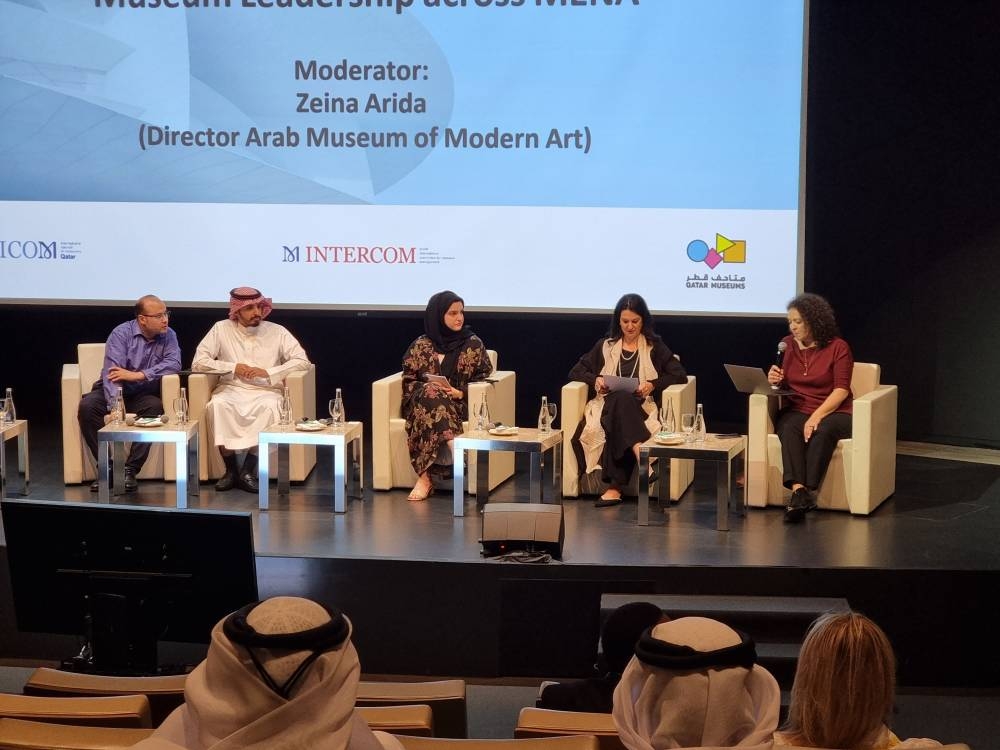Qatar Museums Chairperson HE Sheikha Al Mayassa bint Hamad bin Khalifa al-Thani has become “a fashion icon known to be bold in her choice of abayas in official events”, which aims to raise awareness on global issues, a researcher at Qatar Museums has said.
“In 2010, she wore an abaya made completely out of recycled plastic to raise awareness on the increase of plastic pollution on the planet,” said Maha al-Shebani at a panel discussion at the Intercom Doha 2023 conference, which concluded Tuesday at the National Museum of Qatar (NMoQ).
She said HE Sheikha Al Mayassa, who is also one of the most active of the Royal siblings on social media with one million followers on her Instagram (IG) account (second to His Highness the Amir Sheikh Tamim bin Hamad al-Thani), uses her fashion statements to encourage and empower local talents.
Al-Shebani noted that HE Sheikha Al Mayassa also established M7, which now serves as Qatar’s hub for innovation and entrepreneurship in design, fashion, and technology.
This unique institution offers local talents the needed resources and expertise to bring their ideas to fruition as it helps empower designers to collaborate, explore, and establish successful businesses.
She said that HE Sheikha Al Mayassa utilises her social media pages to provide a platform in recognising emerging local artists and residents in Qatar, showcasing new exhibitions in Doha and abroad, and new creative initiatives, in addition to highlighting diplomatic developments through arts and culture.
An example, al-Shebani said, was Her Excellency’s post where she welcomed Vietnam’s Vice President and her delegation at NMoQ, describing it as “a wonderful presentation of cultural relations.”
She also underlined HE Sheikha Al Mayassa's larger-level initiatives such as the Years of Culture programme, launched in 2012 after Qatar won the bid to host the FIFA World Cup 2022. “It is an annual initiative where Qatar partners with nations for an entire calendar year to collaboratively enjoy and educate one another on each country’s culture and artistic offerings”.
In her talk, al-Shebani, who graduated from the School of Advanced Study, University of London, with a degree in global diplomacy, cited her research and highlighted how culture – cultural diplomacy in particular – can impact international relations.
“My research defines cultural diplomacy as a two-way strategic tool that aims to encourage learning and teaching, both together, to ultimately avoid cultural misunderstandings and misconceptions to positively influence major national level relations and agreements,” she said.
Al-Shebani noted that countless cultural misconceptions and stereotypes flood today’s world due to extensive globalisation “be it in the development of the internet”, the spread of social media, or even the popularisation of Hollywood films around the world.”

Maha al-Shebani highlights the importance of cultural diplomacy at the Intercom Doha Tuesday. PICTURE: Joey Aguilar.

